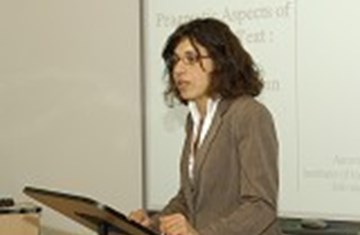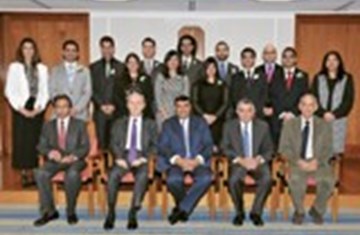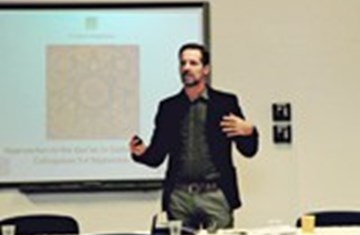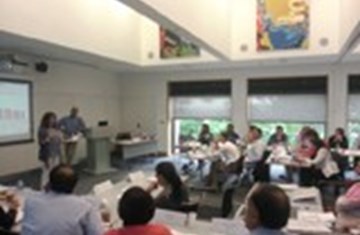IIS Qur’anic Studies Unit Hosts Occasional Lecture
The Institute’s Qur’anic Studies Unit hosted an occasional lecture by Dr Nuria Martínez de Castilla of the Complutense University of Madrid. The lecture, entitled Surviving the Fall of Granada: The Qur’an among Muslims in 16th Century Spain, focused on the methods used by Muslims in the Iberian peninsula to keep their cultural traditions alive.
Providing some background, Dr Martínez de Castilla discussed how various territories of the Iberian Peninsula remained under Muslim rule from 711 CE until the end of the 15th century. When the keys of the city of Granada were handed over to the Catholic Kings in 1492 CE, Iberian Muslims were stripped of any political power. A few years later, many were compelled to relinquish their identity. Their religion, their cultural customs (clothing, food, feasts and creeds) as well as the use of the Arabic language, both spoken and written, were all forbidden.
However, in spite of these prohibitions, books written in Arabic script were still transcribed and circulated, especially the Qur’an. Within Muslim communities, where Arabic was no longer spoken or understood, as it happened in Castile or Aragon, the “Mudejar” Muslims (who kept their faith but lived under Christian rule) developed a linguistic variant of Spanish called “Aljamia”, which had its own peculiarities and was usually written in Arabic script. Aljamia came to full blossoming in the second half of the 16th century CE with the Moriscos (descendants of Muslims who had converted to Christianity, at least publicly).
The aim of the lecture was to assess the production and transmission of these proscribed books, written in Arabic or in Arabic script, notably the Qur’an, and to offer fresh views about the historical, sociological and cultural context in which these texts were transmitted.






